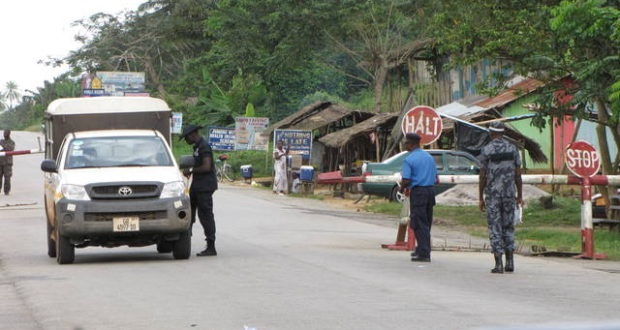Over the weekend, I was pulled aside at a police checkpoint — nothing unusual for a Ghanaian driver. License? Checked. Insurance? Also checked — or so I thought.
I had renewed my insurance online just two days before, but when I showed the officer my proof of payment, the app showed “pending.” A delay between the transaction and the actual update. A technicality.
Still, she slipped my license into her uniform and calmly informed me that I’d need to “come with her to the station” — or pay a spot fine. Her superior just smiled and was suddenly preoccupied with a video on TikTok.
GHS250. No receipt. No written charge. Just “make it quick and go.”
I paid.
But it wasn’t just the money that unsettled me. It was her quiet admission: “I know you’ve done it… but this is how things are,” and her colleague’s indifference.
In that moment, it wasn’t just about me. It was about a system where right doesn’t always translate to relief, and rules serve as tools for roadside revenue.
Abuse of authority: When the enforcer becomes the judge
In theory, the police are tasked with maintaining law and order.
In practice, many drivers in Ghana experience them as mobile courts — judge, jury, and executioner rolled into one.
There’s rarely a conversation or caution, only commands. Rarely a ticket, only threats. And rarely a process, just payment.
This unchecked authority, especially in traffic enforcement, undermines public trust and creates fertile ground for abuse.
If a driver can be penalized without formal charge, then what separates enforcement from extortion?
Spot fines or spot shakedowns?
Let’s call it what it is: institutionalized bribery.
The moment a fine is paid without documentation, accountability is lost. Who’s keeping track? Who audits the cash flow from these “off-the-record” transactions? No one.
For the average driver, these payments are not acts of guilt — they’re acts of survival. A way to avoid delays, insults, or worse, impounding.
But these quiet payments cost more than money. They normalize corruption and punish people simply for trying to do the right thing — and worse, they strip the system of its moral authority.
Checkpoint nation: over-policing as policy
Drive from Accra to Kasoa and you’ll likely encounter 3–5 checkpoints. Some days, it’s more. At each stop, it’s the same routine: papers, license, fire extinguisher, insurance, triangle, first aid kit.
Sometimes you’re waved on. Other times, a minor flaw becomes a major crime — until “something small” changes the mood.
This over-policing isn’t about safety. It’s about power. And profit.
In a system where every stop feels like a transaction, even the law-abiding are made to feel criminal.
Outdated laws and selective enforcement
Why are drivers still being fined for missing first aid kits or fire extinguishers — in private cars — when these items are rarely, if ever, needed in such contexts?
The laws themselves may have made sense decades ago, but today, they’re often used more as traps than tools for safety.
Even worse, enforcement is wildly inconsistent. One officer demands a fire extinguisher. The next ignores it but complains about your tinted windows.
There’s no standard, no clarity, and no protection for the driver trying to comply.
Meanwhile, ride-hailing drivers and trotro operators navigate potholes big enough to swallow a wheel, but it’s your missing triangle that warrants a stop.
A broken system, with no safety net
Here’s the real kicker: there’s no grievance redress system that works. If you’re unfairly fined or harassed, where do you go? The station?
They’ll likely back their own. The DVLA? They’ll say it’s a police matter. The public complaints office? Try that and see.
And so, we remain trapped in a cycle of silence, where inconvenience becomes compliance, and injustice becomes routine.
Where do we go from here?
Driving in Ghana has become more than a means of transport — it’s a test of patience, privilege, and persistence. Until we address the structural issues:
- Reform traffic enforcement and police accountability
- Digitize all roadside fines for transparency
- Eliminate spot fines without official receipts
- Review and modernize outdated road laws
- Establish an independent motorist complaints platform
…then the road will remain a cashpoint for some, and a nightmare for others.
This isn’t just about driving. It’s about dignity. And until that becomes policy, we’ll keep paying the price — in cash, in silence, and in frustration.



